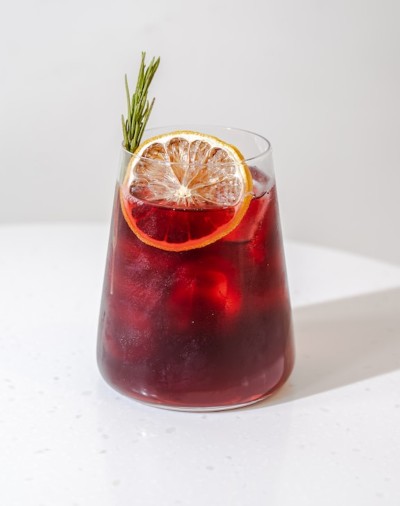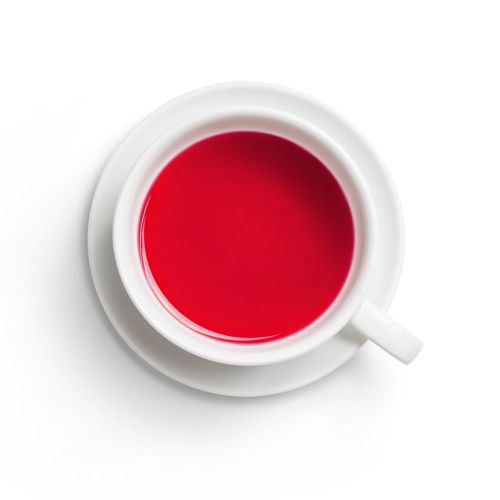Get In Touch
Info@fitfaysal.com

There’s nothing better than a chilled bottle of Zobo to satisfy your natural, cultural drink craving!
If you’ve lived in Nigeria for some time, then you’ve come across this soothing drink. We’ve been enjoying Zobo for decades now, but who knew they were so beneficial for your health?
Zobo or Hibiscus tea contains bioactive compounds such as phenolic acids, flavonoids, and other nutrients that can help combat oxidative stress, lower blood pressure, aid in weight loss, and help you manage blood sugar levels.
So, let’s focus less on the refreshing taste of Zobo, and let’s discover how drinking Zobo can make you healthier!

Zobo, also known as Hibiscus tea, sorrel tea, and roselle juice, is well-known for its vibrant flowers and diverse species.
It originated in many different parts of the world, including Asia, Africa, and the Pacific Islands.
It has a long history in many cultures, where its flowers, leaves, and calyxes have been used for medicinal purposes, drinks and teas, and even religious ceremonies.
In terms of how zobo originated in Nigeria, the hibiscus plant found its way to the country through trade and cultural exchanges.
Hibiscus sabdariffa, the species used to make Zobo, is native to West and East Africa.
It is believed that the plant’s cultivation and use for the Zobo drink date back centuries in Nigeria and that it is deeply linked with traditional practices.
Hibiscus calyxes were dried, brewed, and sweetened with natural sweeteners or spices like ginger to create the reddish-purple zobo.
This drink was praised not only for its refreshing flavor but also for its perceived overall health benefits.
Today, Zobo is a cultural icon in Nigeria, loved for its taste as well as its health-promoting properties.

At first glance, Zobo may seem like just a refreshing drink, but after taking a closer look at its nutritional profile, you get a closer look at what makes this drink so good.
Check out the science-backed health benefits of drinking Zobo:
Zobo is rich in antioxidants such as anthocyanins and polyphenols that are linked to blood pressure reduction.
A study conducted with 50 mild-to-moderately hypertensive subjects who were given 500 ml of Hibiscus tea every day for 28 days resulted in a significant decrease in blood pressure.
This is just one of many studies that have confirmed the role of zobo or hibiscus tea in lowering blood pressure.
This cultural drink contains various antioxidants and a specific compound called protocatechuic acid that may prevent or reduce the growth of certain bacteria.
According to some studies, Zobo has antibacterial properties that may prevent the growth of E. coli and other harmful bacteria.
Zobo drinks are low in calories compared to most of the drinks out there.
So, if you feel like you can’t eliminate drinks from your weight loss diet, simply replacing those sugary juices and sodas with a lightly sweetened Zobo drink may help you shed some weight.
A study carried out on women over the age of 60 who were given two 150-ml cups of hot hibiscus tea per day for 21 days resulted in a loss of 1kg without making any other changes.
Additionally, zobo has the potential to reduce body mass due to its effect on improving liver steatosis and regulating metabolism.
It’s refreshing and can also help you manage your blood sugar levels?
Well, yes, but only if you opt for low-sweetened Zobo drinks.
Compounds like anthocyanins, flavonoids, phenolic acids, and more possess properties that may contribute to Zobo’s ability to help regulate blood sugar levels.
An experiment was carried out on a group of 12 30- to 60-year-old women who were given 250 ml of stevia-sweetened zobo twice a day for 14 days.
This resulted in noticeably lower fast blood glucose levels.
Zobo drink is rich in antioxidants, especially polyphenols, which may support liver health.
A high-fat diet causes an emerging global health issue known as non-alcoholic fatty liver disease (NAFLD).
A study done to understand the effects of hibiscus on rats with NAFLD discovered that hibiscus extracts improved antioxidant properties and reduced liver steatosis, liver inflammation, oxidative stress, and insulin resistance, all of which can aid in NAFLD prevention.
Research on its effect on humans is still limited.
Anthocyanins and other phytochemicals found in Zobo may play a role in cholesterol regulation, thereby helping improve heart health.
An experiment carried out whereby individuals were given 500 ml of hibiscus tea every morning and afternoon for 14 days resulted in a significant decrease in cholesterol levels. This reduced the study group’s risk of heart disease.
Check out how Uda seeds can also help balance cholesterol levels.
Drinking zobo may provide you with sufficient iron to cure or prevent diseases caused by insufficient iron intake, like anemia.
In recent times, it has been suggested that hibiscus tea can be used for people suffering from iron deficiency.
Scientists discovered that consuming 1000–1500 ml of hibiscus tea or zobo drink per day for 30 days could lead to an increase in iron in your body.
This may seem like a stretch to most people, but it has been recorded to an extent that hibiscus contains certain properties like polyphenols, flavonoids, and other antioxidants that can help prevent or reduce your chances of getting cancer.
More studies claim that drinking zobo may reduce the growth of cancer cells. However, further research in this area is required.

As you’ve discovered, zobo isn’t just a refreshing drink; it contains various compounds that can provide the body with many health benefits.
Now the question is: does regular consumption of Zobo have any side effects?
Not to most, but let’s check some potential considerations and side effects of Zobo.
A blessing for some and not quite for others.
The ability of Zobo to lower blood pressure may pose risks for people who already have low blood pressure or are taking blood pressure medications.
Pregnant women should exercise caution when consuming zobo.
According to some studies, it may have negative effects on menstruation or cause miscarriages during pregnancy.
Hibiscus tea may interact with certain medications, including antihypertensive drugs, diabetes medications, and chloroquine.
Because it can either enhance or reduce the effects of these medications, it is essential to consult with a healthcare professional.
Hibiscus tea has the potential to influence estrogen levels in the body.
While more research is needed in this area, people with hormone-sensitive conditions or those undergoing hormone treatments should consult with a doctor before using it regularly.
Some people may experience mild stomach discomfort, gas, or constipation after consuming hibiscus tea, especially if consumed in large quantities.
Don’t let these potential side effects keep you from drinking Zobo.
Only a few people will experience any side effects, and as long as you don’t overconsume, you should be good.
Zobo, also known as Hibiscus tea, may affect your body in various ways.
It has the potential to lower high blood pressure, act as an antioxidant to combat free radicals, prevent bacterial growth, aid in weight management, manage blood sugar levels, support liver and kidney health, regulate cholesterol levels, and improve iron absorption to prevent anemia.
However, individual reactions may vary, so it is best to consume it in moderation.
Zobo, or Hibiscus tea, contains a variety of vitamins, including vitamin C, a powerful antioxidant.
It also contains trace amounts of vitamin A, vitamin B1 (thiamine), and vitamin B2 (riboflavin).
These vitamins support various aspects of health and add to Zobo’s overall nutritional value.
While Zobo does not directly cause sleepiness, it may have a calming effect on some people due to its mild sedative properties.
This effect is attributed to the tea’s soothing nature rather than any specific compound that causes drowsiness.
Individual tolerance, caffeine sensitivity, and timing of consumption can all have an impact on its effect on sleepiness.
Some research suggests that drinking Zobo, or Hibiscus tea, may have an indirect benefit for brain health.
According to these studies, its antioxidant properties may help protect against oxidative stress, which has been linked to neurodegenerative diseases.
More extensive research is needed, however, to establish a direct link between Zobo consumption and brain health.
When consumed in moderation, hibiscus tea is generally safe for most people.
Excessive consumption, on the other hand, may cause stomach upset, dizziness, or blood pressure fluctuations.
There you go! 8 potential health benefits of drinking Zobo
In conclusion, Zobo, also known as Hibiscus tea, emerges as a drink packed with potential health benefits.
Its antioxidants may help manage blood pressure, prevent bacterial growth, aid weight management, regulate blood sugar levels, and potentially support liver health.
While generally safe, excessive consumption should be avoided due to possible side effects such as lowered blood pressure and interactions with medications.
Moderation is key to enjoying the health benefits of Zobo without adverse effects.